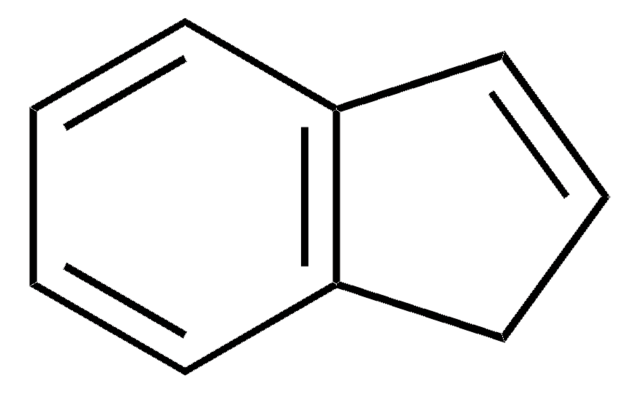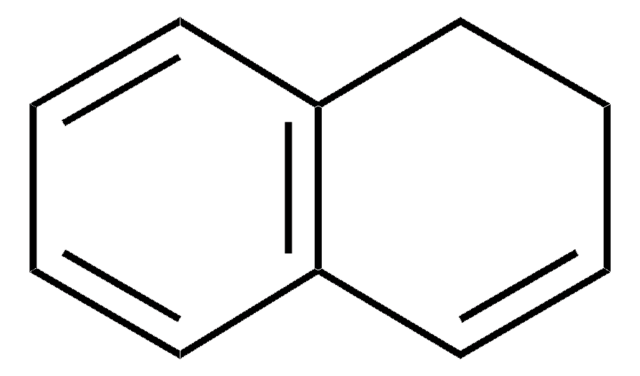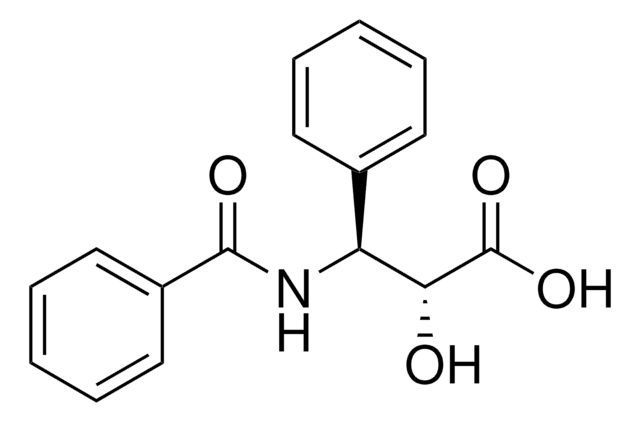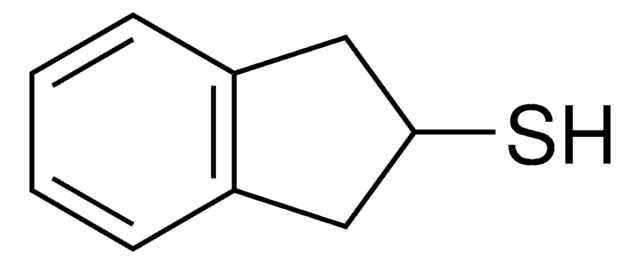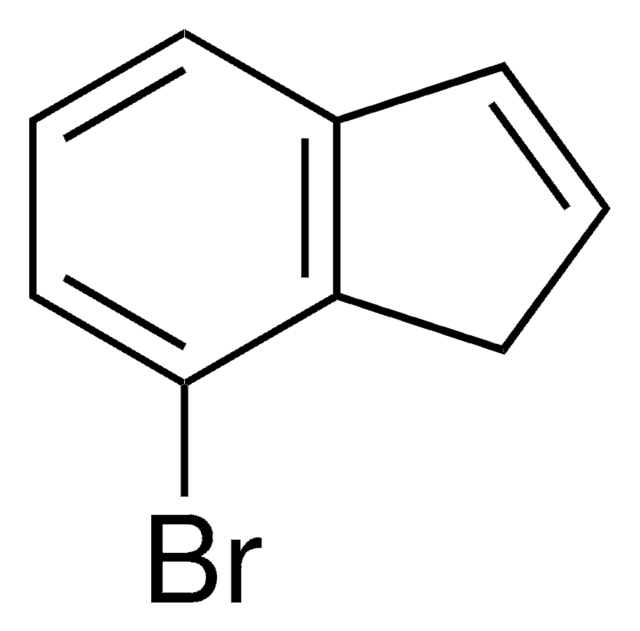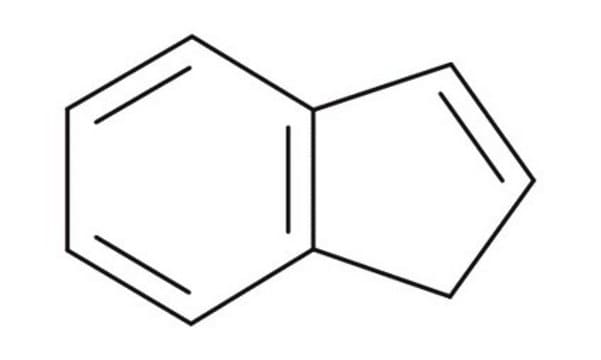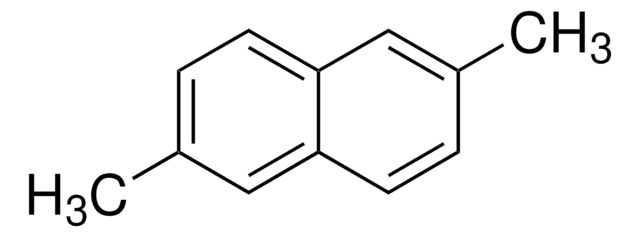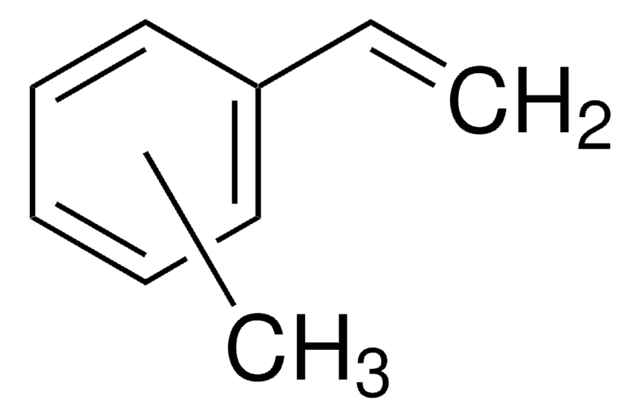449431
2-Methylindene
98%
Sinonimo/i:
2-Methyl-1H-indene
About This Item
Prodotti consigliati
Saggio
98%
Indice di rifrazione
n20/D 1.567 (lit.)
P. eboll.
45 °C/0.2 mmHg (lit.)
Densità
0.971 g/mL at 25 °C (lit.)
Stringa SMILE
CC1=Cc2ccccc2C1
InChI
1S/C10H10/c1-8-6-9-4-2-3-5-10(9)7-8/h2-6H,7H2,1H3
YSAXEHWHSLANOM-UHFFFAOYSA-N
Cerchi prodotti simili? Visita Guida al confronto tra prodotti
Codice della classe di stoccaggio
10 - Combustible liquids
Classe di pericolosità dell'acqua (WGK)
WGK 3
Punto d’infiammabilità (°F)
168.8 °F - closed cup
Punto d’infiammabilità (°C)
76 °C - closed cup
Certificati d'analisi (COA)
Cerca il Certificati d'analisi (COA) digitando il numero di lotto/batch corrispondente. I numeri di lotto o di batch sono stampati sull'etichetta dei prodotti dopo la parola ‘Lotto’ o ‘Batch’.
Possiedi già questo prodotto?
I documenti relativi ai prodotti acquistati recentemente sono disponibili nell’Archivio dei documenti.
I clienti hanno visto anche
Il team dei nostri ricercatori vanta grande esperienza in tutte le aree della ricerca quali Life Science, scienza dei materiali, sintesi chimica, cromatografia, discipline analitiche, ecc..
Contatta l'Assistenza Tecnica.
